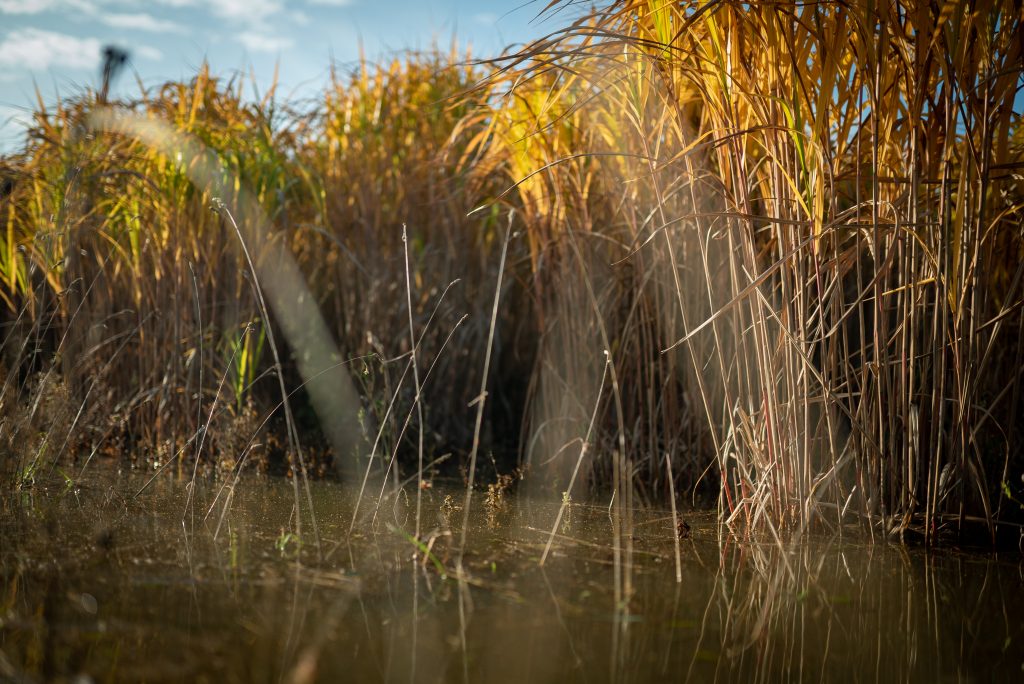Farm reduces flooding by planting Miscanthus
19th December 2019
A Yorkshire farm is hosting a special event to demonstrate how growing Miscanthus has helped to stabilise flooded soils and reduce flooding on the farm.

Miscanthus growing on waterlogged land.
A Yorkshire farm is hosting a special event to demonstrate how growing Miscanthus has helped to stabilise flooded soils and reduce flooding on the farm.
Fergus and Christopher Payne will lead a farm walk in January to showcase the crop growing on flooded land. The pair first planted 25 hectares of the crop on waterlogged land in spring 2016, with soil varying from sandy loam to heavy blue clay.
“Before Miscanthus, the fields were hard work to manage,” Fergus says. “We ended up putting them in fallow for the most part. We also had a blackgrass issue.”
Looking ahead to their third harvest in winter/spring 2020, he says the crop has done well despite the varying soil types and they are seeing less waterlogging, while the blackgrass is being visibly smothered.
Some weed control is required in the spring months, Fergus says, and the ground must be well prepared in the autumn before spring planting.
“Other than that, it’s a good low maintenance crop for poor farmland that is otherwise expensive and time consuming to manage,” he adds.
Miscanthus is a low input carbon negative crop that has been hailed a robust diversification option for arable or mixed enterprise. A recent study by the Institute of Biological Environmental and Rural Sciences at Aberystwyth University suggests it can grow well in waterlogged and flood-prone areas and provides much-needed soil stability. Crop yield is also not affected by excess water.
Supply chain specialist for Miscanthus, Terravesta, is co-hosting the event and invites anyone interested in growing the crop to come along. Ben Booth, who is part of the planting team, says there has been a great deal of interest in Miscanthus this year for flooded fields.
“As a solution to land that is becoming increasingly unlikely to plant up with arable crops, Miscanthus is a profitable option,” he explains. “Miscanthus not only helps to stabilise land, it also feeds depleted soils, retaining vital nutrients.”
The Miscanthus farm walk takes place on 29th January in Holme-on-spalding-moor, East Yorkshire. Bookings can be made at www.terravesta.com/events
